Gaining Ground in the Fight against Malaria: The View from Nigeria
Gaining Ground in the Fight against Malaria: The View from Nigeria
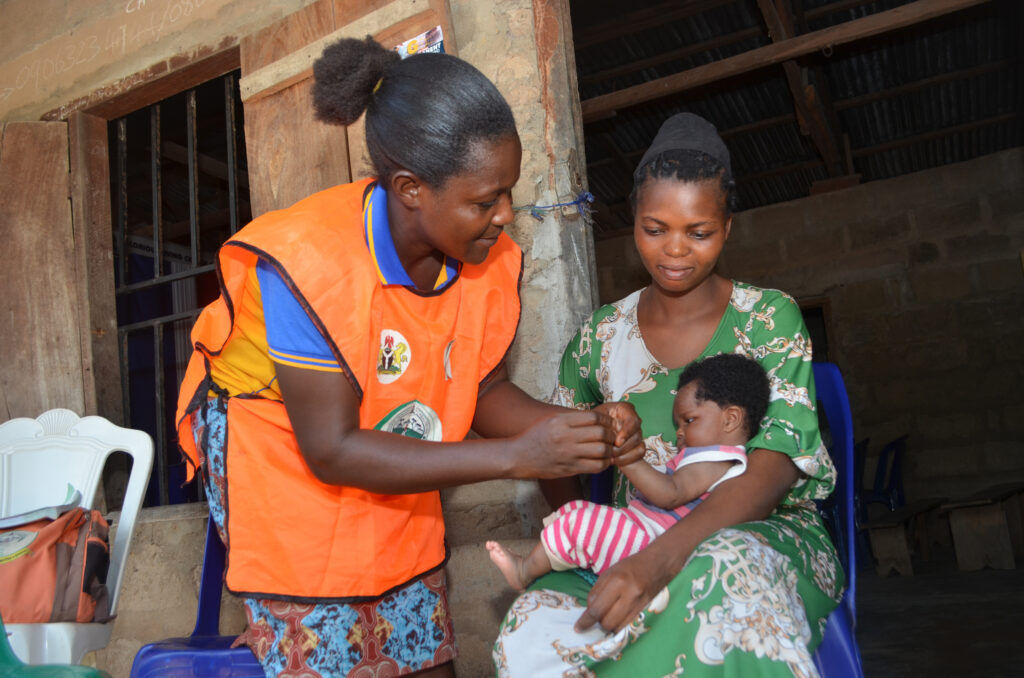
Overcoming a scourge as formidable as malaria requires a comprehensive strategy and sophisticated tactics. Management Sciences for Health (MSH) is bringing our expertise to this endeavor in Nigeria, which is home to 31% of the world’s malaria deaths. Our entirely Nigerian team is working with Nigerian colleagues across the health sector in an integrated effort that leverages national, state, and local resources to apply the latest knowledge and strengthen systems to end malaria. MSH’s approach emphasizes innovations in technology, service delivery, data management, and sustainability.
MSH has a substantial presence working on malaria in Nigeria, thanks to partnerships with the two largest funders of global antimalaria efforts: the US President’s Malaria Initiative (which funds the project known in Nigeria as the President’s Malaria Initiative for States, or PMI-S) and the Global Fund (where we are supporting the efforts of lead implementer Catholic Relief Services). Together, those projects cover 19 of Nigeria’s 36 states, along with policy work that affects the entire nation. The scope of work includes the full continuum of malaria programming, from prevention, diagnosis, and treatment to other crosscutting activities related to commodity and supply chain management to monitoring and evaluation.
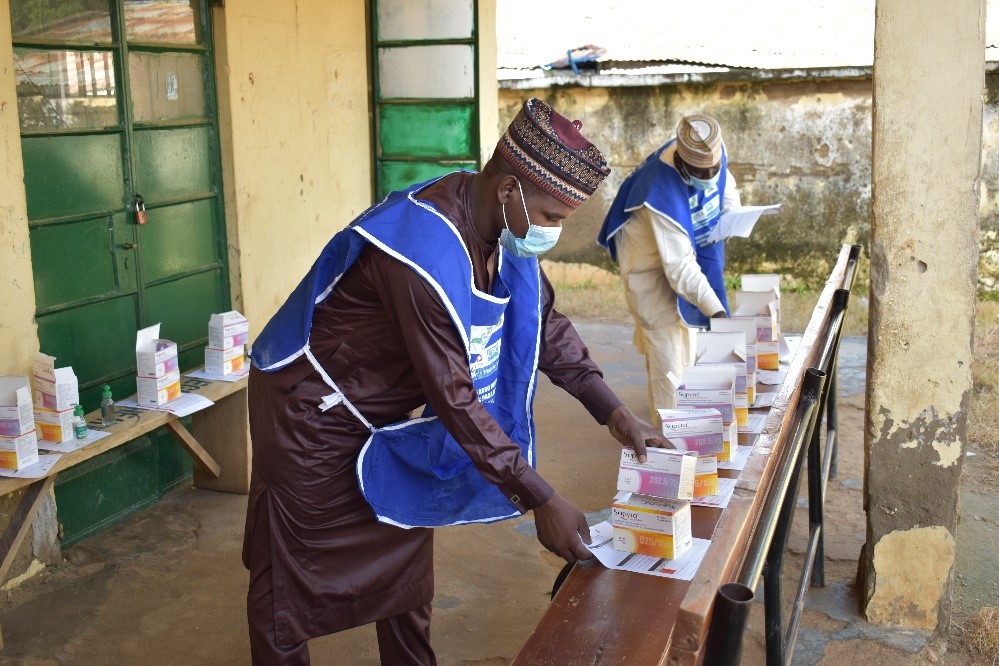
The depth and breadth of MSH’s partnerships in the country, where we have worked for nearly two decades, allow us to coordinate efforts and share knowledge. The two projects work closely together, sharing data and experiences. PMI-S collaborates with the Nigerian government to develop policies for malaria elimination (a malaria-free Nigeria), and both projects operate directly under these policies. Through all of these activities, the goal is to significantly reduce malaria cases and deaths, particularly among women and children, who are the most vulnerable. This is done through a series of interventions that are designed to be sustainable and, in the future, implemented without donor assistance.
To that end, our work is supporting the country’s National Malaria Elimination Program and is implemented entirely through country structures. We partner with Nigeria in its efforts to develop a more sustainable, domestically financed way to fund long-term development and build lasting local capacity and skills for integrated services at the state level.
Nigeria is making progress in its battle against malaria. The data tell us a clear story in two important areas: the success of prevention initiatives and the decline in test positivity rates.
Prevention efforts
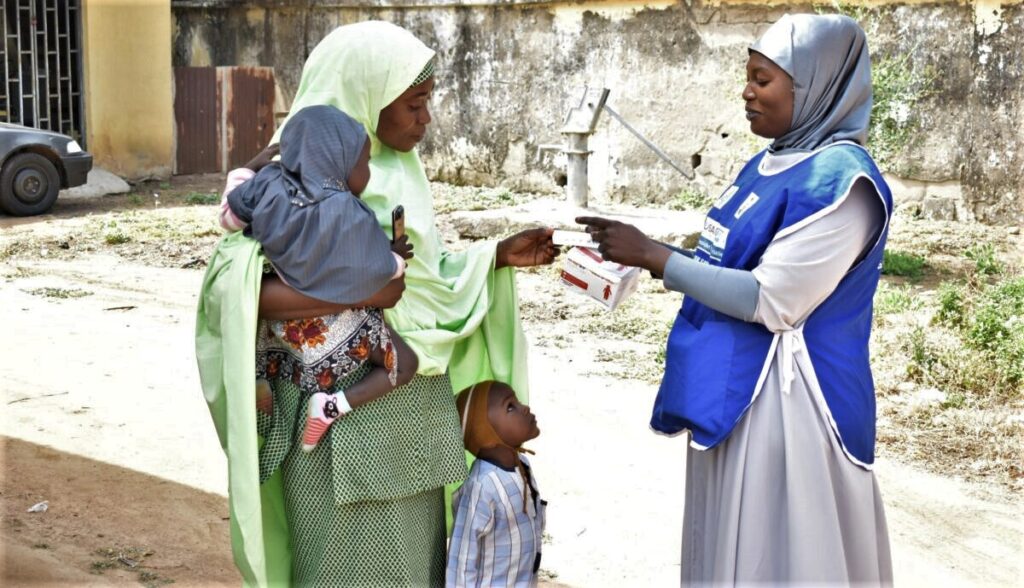
MSH’s projects are working to prevent malaria, particularly in children. We do this through campaigns to distribute insecticide-treated bed nets and administer seasonal malaria chemoprevention (SMC) medicine to children under 5 during the rainy season, when malaria spreads.
One of the biggest challenges in implementing campaigns of this nature is estimating the target population properly, according to MSH Portfolio Director for Nigeria Dr. Olugbenga A. Mokuolu. In a country of Nigeria’s size and population, this is especially difficult.
To address the need for accurate population estimates, the MSH team used triangulated data to improve the accuracy of the projections. “It’s a combination of national population projections and some technology-based estimates of population using satellite imaging and then interfacing with data from the national Primary Health Care development agency, such as immunization data over time,” Dr. Mokuolu explains. In addition, MSH, in partnership with WHO, built a National Malaria Data Repository (NMDR) to consolidate all available data on malaria in the country in one accessible web platform. Through the NMDR, there is an improvement in data quality checks and more timely and accurate sharing of information. It is now the go-to platform to monitor key performance indicators.
Distributing commodities such as insecticide-treated bed nets or medicines, especially to rural or isolated communities, requires a strong supply chain. MSH and our local partners work to ensure that these items can move from the manufacturing plant to the hands of people who need them, no matter where they live. This involves everything from training front-line personnel on proper inventory management to assessing and upgrading warehouses and managing inventories, transportation, and distribution.
When it came to tracking the activities and capturing the data of the campaign itself, innovations in technology were necessary. For example, moving from paper-based record keeping to digital tools for program participants’ attendance was an important innovation, piloted by MSH through PMI-S and later adopted by the national program. The learning goes both ways: the national program proposed a “bring your own device” approach that MSH adopted, where the applications necessary for recording campaign activities were loaded onto health workers’ own smartphones, reducing program costs by eliminating the need to purchase separate devices.
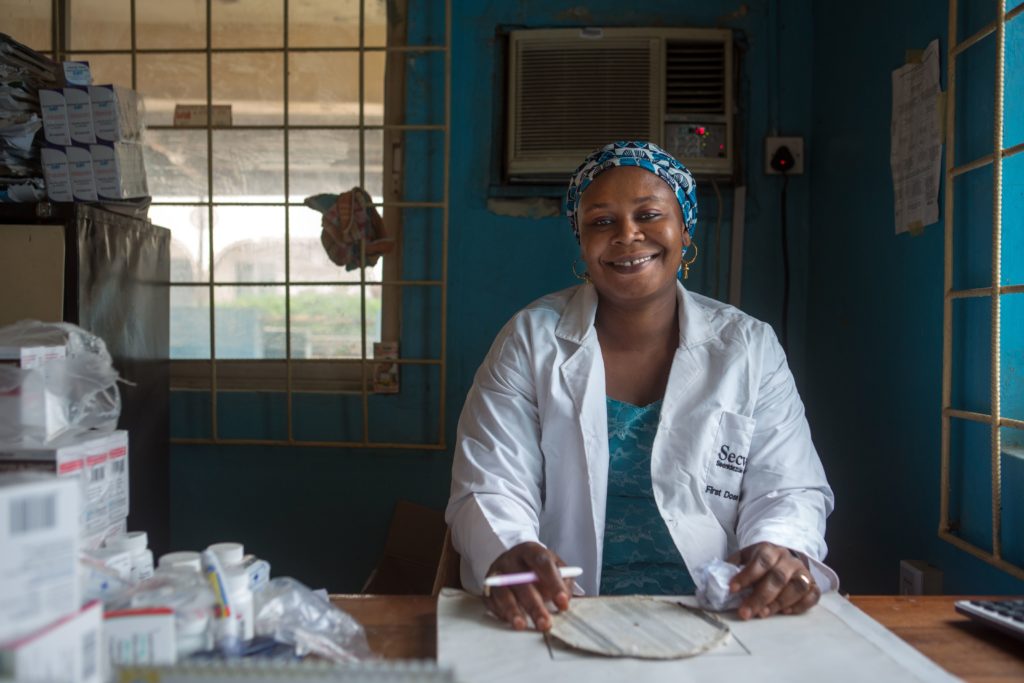
Local knowledge is essential to success. “We didn’t import people from one location to the other,” Dr. IniAbasi Nglass, MSH’s Deputy Chief of Party for PMI-S in Nigeria, says of the community health workers who implemented the campaign. “We worked with the locals who understand their environment, and people know them. Because seasonal malaria chemoprevention is done house to house, it’s hard to bring in someone people don’t know and be allowed into their homes. So, we built the capacity of community health workers, we gave them the medicines, and they went out to administer these medicines to their people.”
Dr. Nglass emphasized that timely payment of the community health workers and local storage of the commodities in partnership with the state governments were key to the campaigns’ success. As a result of these successful SMC campaigns, malaria prevalence in children under 5 is dropping. In Taraba State, where our local partners serve an area that is home to about 865 children under 5, cases of fever and confirmed malaria have dropped from more than 150 at the end of 2019 to fewer than 80 between the beginning of 2021 and the beginning of 2023.
Test positivity rate
Another important indicator of the success of these integrated approaches is the reduction in the overall test positivity rate. All eight states where PMI-S is working have seen a decrease in test positivity over the last three years. The most significant drop is in Ebonyi State, which had a test positivity rate of 82% in January 2020 and 54% in April 2023. Test positivity is an important indicator to consider because these rates reflect not only that fewer people have malaria but also higher quality of data, which we can attribute to the fact that certain processes have been improved.
According to MSH Project Director for the Global Fund Malaria Grant in Nigeria Isaac Adejo, “The test positivity rate is high in some places because of long-standing practices where health workers treat patients who have not been tested. In order to make their record straight, they will indicate that they tested, and the person is recorded as positive.” To address these problematic data, MSH works with our partners to provide training and technical assistance to workers at the facility level to emphasize the importance of complying with national treatment guidelines for testing before administering medicine.
![[Health worker uses a RDT to test an infant for malaria during a mobile clinic visit. Photo credit: Erik Schouten/MSH]](https://msh.org/wp-content/uploads/2019/05/img_0757_715px.png)
Another important innovation in improving the quality of data and reducing test positivity rates has been archiving the cassettes used for rapid diagnostic testing (RDT) and reconciling them with the doses of artemisinin-based combination therapy (ACT)—the medicine used to treat malaria—disbursed. Having a verifier count the archived tests to see that they correspond with the doses of ACT given is helping to reduce the number of false positives and enhance adherence to the national treatment guidelines.
These interventions are largely carried out directly by the staff in the state ministries of health, with MSH providing support and technical assistance as necessary. The end goal is not only the elimination of malaria but also that Nigeria and other countries at high risk can eventually sustain the needed measures with less outside assistance. Making sure that local partners have ownership of these activities is one important way to contribute to that goal—for example, working through local organizations that implement interventions while we provide training and technical assistance as needed. Domestic resource mobilization—raising funds within Nigeria—is another.
Dr. Mokuolu is encouraged on this front by the establishment of the National End Malaria Council by the president of Nigeria. This group is empowered to solicit and hold funds for malaria project implementation in the country. Dr. Mokuolu hopes that the members will use their influence to achieve increased funding by the Nigerian government. Dr. Nglass adds that the states have developed and agreed to a “Domestic Resource Mobilization framework,” which looks at different sources for funding, including public-private partnerships and philanthropic funds, outside of government. MSH is also working with our partners at the state and national levels to help them develop their own plans and budget for them in a timely manner that corresponds with the government budgeting cycle.
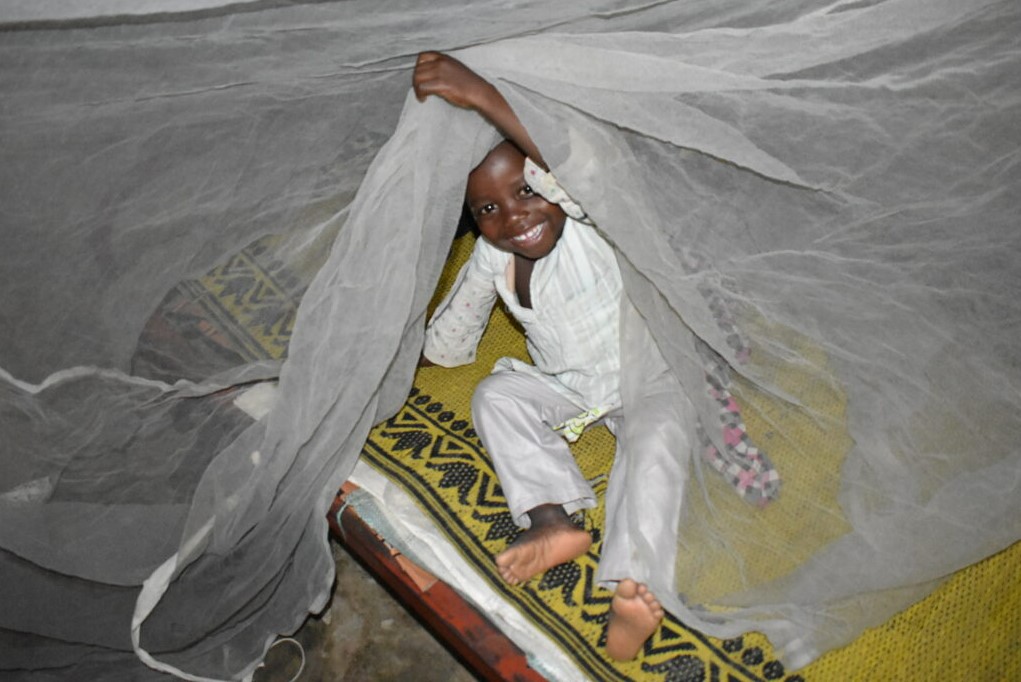
At the heart of these successes are local partnerships. MSH can advise on many of these processes because of our longstanding relationships in the country and our presence through multiple projects that share resources and coordinate with one another in support of the national plan. This takes place between the PMI-S and Global Fund projects as well as through the experiences of the professionals of the National Malaria Elimination Program, community health workers, and everyone involved in eliminating malaria in Nigeria. We adopt best practices from one another, such as the digitizing of attendance sheets, which was first modeled by PMI-S and later adopted by the other programs.
Behind the data are countless stories of Nigerian families taking action to stop the spread of malaria, from adherence to medication to sleeping under bed nets or clearing away groundwater near their homes. Dr. Nglass says she is encouraged when she sees that these large-scale interventions are working at the individual level.
“When someone calls you and says, ‘I have a fever, do you have an RDT?’ it’s satisfying because it means that awareness has been created. That behavior change we’re looking for has actually started when people ask for a test. When a mother tells you that their child has not fallen sick of malaria for two or three years, because they are sleeping inside mosquito nets. That is when you know you are making a difference. That is what gives me hope.”
With continued investment and collaboration, we can build on the progress that has been made, steadily transferring more ownership to Nigeria itself. Eventually malaria can be eliminated, and women and children, who bear the heaviest burden of malaria, will have better opportunities to lead healthy lives.